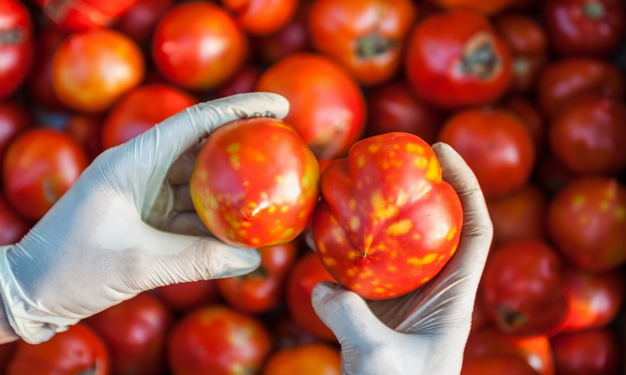Israeli breeding company NewBreed is making headlines with its response to Bayer’s recent research report regarding the impact of rootstock on ToBRFV (Tomato Brown Rugose Fruit Virus) symptoms. While Bayer’s study concluded that rootstocks do not significantly influence ToBRFV outcomes, NewBreed’s experience presents a different perspective.
NewBreed has been actively testing and promoting their ToBRFV-resistant rootstock, named Yogev, for the past three years. The company asserts that their rootstocks and scions not only offer resistance to ToBRFV but also enhance tomato productivity. This claim is supported by their findings that the TM1 resistance gene, historically used to combat Tomato Mosaic Virus (TMV), is effective against ToBRFV.
TM1 was originally introduced to tomatoes fifty years ago to combat TMV, and while it was later superseded by the more advanced TM2 gene, NewBreed has reintegrated TM1 into their breeding program. They have successfully reintroduced TM1 into various tomato hybrids and rootstocks, creating a new family of resistant hybrids that provide robust protection against ToBRFV.
NewBreed’s research highlights the limitations of using susceptible rootstocks in ToBRFV-infected soils. When susceptible tomato hybrids are grown on such rootstocks, ToBRFV can replicate and spread, leading to visible symptoms. However, NewBreed’s resistant hybrids, when grafted onto their specially designed rootstocks, maintain their resistance and prevent the virus from compromising plant health.
The company’s commitment to leveraging TM1’s historical resistance to address modern challenges underscores their innovative approach to breeding. Their products aim to mitigate the risks associated with ToBRFV and improve overall tomato production, offering a practical solution for growers facing virus-related challenges.











